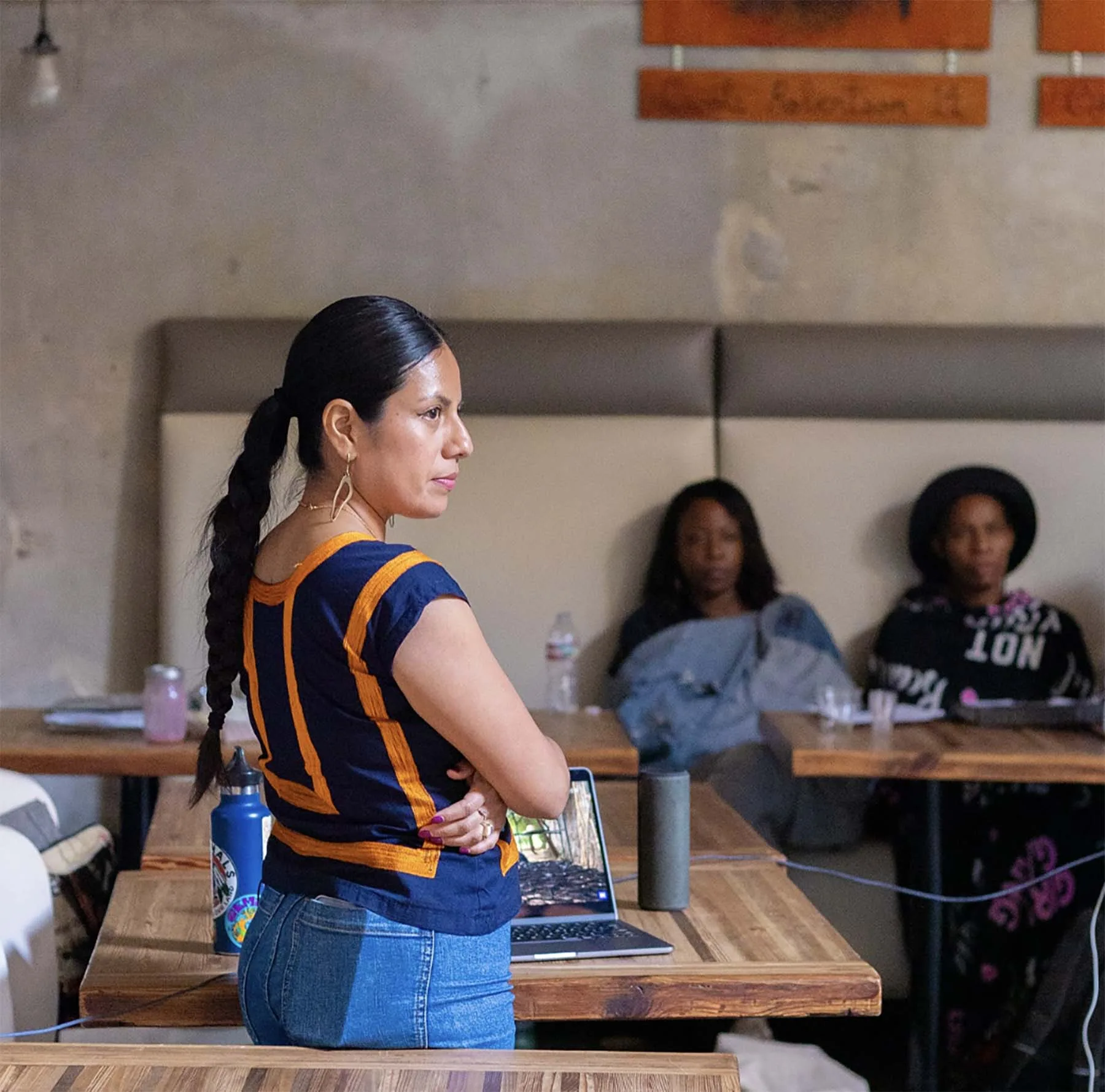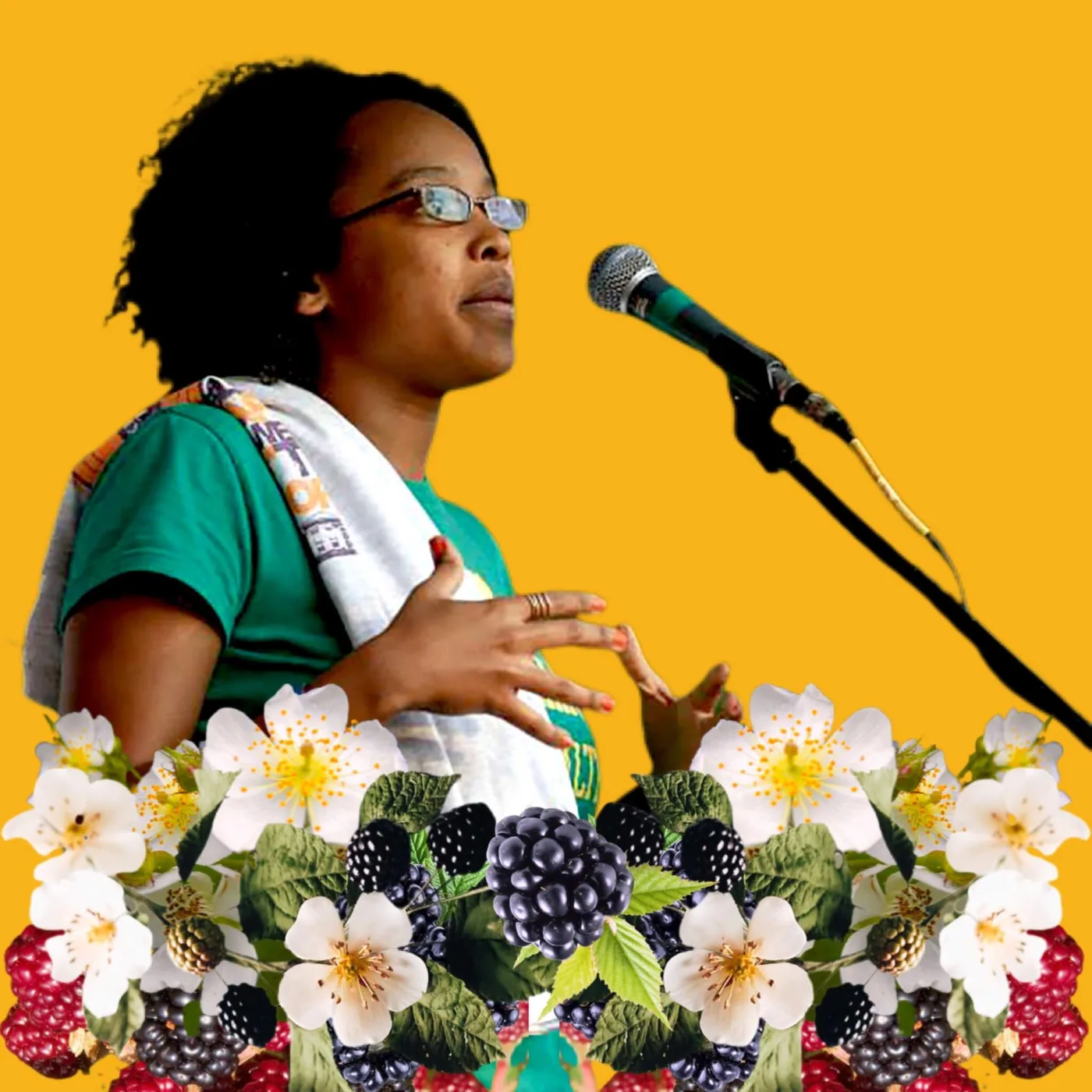Your career has been based in social entrepreneurship, cooperatives and participatory processes, how does this influence your work now?
I grew up in Kentucky where my father loved to grow food. He had a garden for 30 years in our backyard where he cared for okra, tomatoes, blackberries, grapes, onions, and green beans. He would trade his harvest with our neighbors, offering up his okra for their strawberries or his blackberries for a homemade dessert. He managed to keep my family’s bellies and freezers full year after year with his produce. He was also a union worker, and for many years a union steward, helping advocate for the rights and well-being of his co-workers and friends. I learned very early in life the importance of caring for the earth and the power of living in community with others.
I worked on food and farm justice issues most of my career, and after moving back home to Louisville from DC in 2014, I felt called to make a shift. My friends and I noticed the rapidly changing community around us. We wanted to make a difference in our community, but in ways that weren’t the extractive developments that we saw around us. We were interested in co-owning businesses and developing ones that actually met the needs of the community; in stewarding the land and keeping it out of the hands of out-of-town developers; and in financing in new and creative ways, so that investment decisions were actually led by the people the institutions aimed to serve.
For several years, I worked with and eventually co-led the New Economy Coalition (NEC), a national coalition made up of organizations building the solidarity economy - folks working on cooperatives, community land trusts, public banks, and more. While I worked at NEC I also supported the creation of a beautiful Black-led childcare and family collective in my hometown of Louisville called Play Cousins Collective (PCC). The collective is such a powerful example of community-control: we took control of our children’s education and the broader narrative of Black people and Black families. Just like my father showed me the power of living in community and caring for one another, NEC’s network and the creation of PCC helped solidify that we can be so much stronger, together.
What brought you to Food & Farm Communications Fund? Tell us about your new role.
My primary role at PCC was as their grant writer, which is how I first became interested in philanthropy. As a Black women-led organization, PCC faced a number of challenges in our local funding space. Funders often didn’t trust that such a young, community-run organization could make good use of their foundation dollars. Despite the frustrations, I knew there were funders doing it better, who were values-aligned, understood the need for organizations to be led by directly impacted communities, and saw the beauty in cooperatives, collectives, and other “non-traditional” organizations that were truly community-led.
I joined FFCF in 2020 because of the way we do things as a fund. I was drawn to our participatory co-governance process where movement leaders determine how our dollars are spent; and I valued our focus on narrative shift as I’ve seen the impact that building powerful counter-narratives has had in my own community. As Director of Programs and Movement Support, I collaborate with our decision-making team to invest up to $700,000 of the Fund’s dollars each year.
What’s your personal philosophy on philanthropy and systemic change?
Philanthropy is tangled within the same extractive systems it works to address, so it often feels that the work we do to invest in communities can still replicate the harm of the very systems we’re trying to combat. I strive to unlearn what traditional philanthropy often teaches us, and instead turn to the community organizations doing the work and trusted partners like Justice Funders for their guidance on how we can rethink, reshape, and ultimately transform our practices to be movement-led.
How do you bring your experience as a yogi and healer into movement support and community building?
I’ve been teaching yoga for five years, and in my yoga classes, I always tell my students that our session together will be an “offering” from me. It’s something that I’m offering, but that they do not have to accept and that they should modify and adjust to best meet their needs in that moment. That spirit of offerings is what I bring to my organizing work as well. I don’t have the solutions - communities and individuals living in those experiences do - so the partnerships, investments, and trainings that I’m able to offer through this work are an offering that can and should be adjusted to best meet the needs of a community or organization.
If you could interview anyone from your life, living or passed, who would it be and why?
I’d interview my grandmother. She turned 101 in 2022 (!!) and still has so much life and energy to share with the world. And I’d interview my father. He was an organic gardener and a union steward and my first introduction to bartering and mutual aid. He transitioned in 2014 but so much of him still lives in me, so I’d love to hear more about his life journey and dreams.
What inspires you?
Knowing that another world and another way is possible! And seeing the incredible work of our grantees partners and community-led work that is building that new world…the world we need.
Latest News

Holiday Gift Guide 2025

Voices of Climate Justice and Democracy


